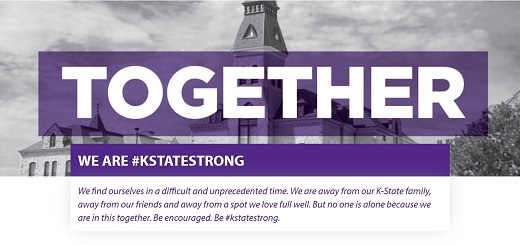06/18/20
K-State Current - June 18, 2020
K-State Current is a weekly news update for the Kansas Board of Regents to apprise the Regents on a few of the many successes and achievements made by K-State faculty, staff and students.
K-State News
Visit K-State’s “We Are #KStateStrong” site to view brief videos designed to keep the K-State family engaged, connected and inspired during these challenging times.
Johnson Cancer Research Center provides nearly $600,000 for research, education
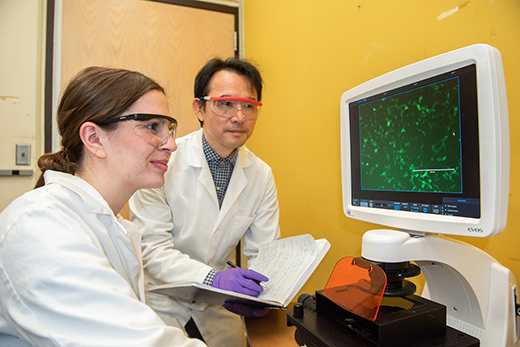 Cancer research and education programs at Kansas State University received a big boost from donations made to the university's Johnson Cancer Research Center.
Cancer research and education programs at Kansas State University received a big boost from donations made to the university's Johnson Cancer Research Center.
"Clinical treatments start with basic cancer research, but this initial step is expensive," said Sherry D. Fleming, director of the Johnson Cancer Research Center and professor of biology. "Unlike clinical cancer providers who charge fees for their work, researchers constantly seek grant funds to support their work."
Private donations to the cancer research center provide hundreds of thousands of dollars a year to support innovative cancer research, laboratory equipment purchases, mentoring of student researchers and more. Information about all the awards is accessible on the center's award programs webpage, cancer.k-state.edu/awards/.
In fiscal year 2020, the center awarded $585,832 to support cancer research and training. It provided $210,200 to faculty for studies into such areas as breast cancer metastasis, DNA damage and carcinogenesis, immunotherapy against lung cancer, and inhibiting collective tumor invasion. It provided $242,132 to graduate and undergraduate students, and $50,000 to the Center of Excellence for Pancreatic Cancer Research. The center also provided $75,000 to support the purchases of a nuclear magnetic resonance machine in the biochemistry and molecular biophysics department and a cell sorter for the Flow Cytometry Core Facility in the diagnostic medicine and pathobiology department.
"We are grateful for the many friends whose donations fund our most promising research programs and student training," Fleming said. "These gifts, large and small, make a big difference, and frequently are used to obtain extramural grants to K-State."
"With excellent basic research in stem cell technology, virology, immunology and nanotechnology, as well as many opportunities for students through paid and mentored research experiences, K-State is making its mark in cancer research as an outstanding public research university," said Peter Dorhout, the university's vice president for research.
The Johnson Cancer Research Center has nearly 100 faculty members conducting multidisciplinary cancer research in 20 departments at Kansas State University. Its programs are supported by private donations. More information about the center is at cancer.k-state.edu.
Kansas State University appoints Shari F. Crittendon as general counsel
 Shari F. Crittendon, a highly experienced general counsel with more than 25 years of legal experience in private practice and higher education, has been appointed the chief legal officer of Kansas State University.
Shari F. Crittendon, a highly experienced general counsel with more than 25 years of legal experience in private practice and higher education, has been appointed the chief legal officer of Kansas State University.
Crittendon's selection as general counsel was made by K-State President Richard Myers following a national search.
"Shari Crittendon has a strong record of accomplishment in resolving the complex legal and business challenges that can confront institutions of higher education, which make her ideally suited to lead the university's Office of General Counsel," Myers said. "As our new general counsel, she will be relied upon to manage all legal services to the university, provide legal counsel and advice to prevent and solve problems, and spearhead vigorous representation in litigation matters and other areas of dispute resolution."
Crittendon will serve on the President's Cabinet and will lead the K-State Office of General Counsel. Her responsibilities will include overseeing legal services to all campuses and related entities of the university, including K-State Athletics and K-State Research and Extension. She will also manage the representation of the university and its administrators in judicial and administrative proceedings and in negotiations with third parties; direct the coordination of all outside counsel for the university; and collaborate with counsel for the Kansas Board of Regents and its related institutions, among other duties. Crittendon will begin serving in her new role remotely on June 28 before arriving on campus on Aug. 1.
"I am delighted to join the Kansas State University community and support its 2025 vision to be recognized as a premier, student-centered, public research university fulfilling its land-grant mission," Crittendon said. "I look forward to collaborating with the president, provost, senior leadership and the outstanding staff in the Office of General Counsel."
Crittendon has made a career of handling complex legal issues that are customary to highly regulated and scrutinized institutions. Most recently, Crittendon served as senior corporate counsel and director of outreach and compliance for the Constitutional Law Center for Muslims in America. Previously, Crittendon was vice president, general counsel and secretary of the corporation of the United Negro College Fund, known as UNCF, where she served as strategic advisor and counsel to the president and CEO, senior management and the board of directors regarding legal, regulatory, governance and legislative matters. While at UNCF, she is credited with playing a pivotal role in establishing the $1.6 billion Gates Millennium Scholars Program. Crittendon also designed and implemented a legislative strategy in collaboration with higher education advocacy groups to secure passage of the historic Student Aid and Fiscal Responsibility Act, which allocated $2.6 billion in mandatory funding for minority-serving institutions.
As principal of her own firm, Crittendon represented tax-exempt organizations and school systems on employment, governance and compliance matters. Earlier in her career, Crittendon was assistant general counsel at Morgan State University and also practiced in the commercial litigation groups of two Mid-Atlantic law firms.
Crittendon earned her law degree from the Francis King Carey School of Law at the University of Maryland and a bachelor's degree in communication and rhetorical studies/public policy from Syracuse University.
K-State Faculty Highlights
NSF renews K-State CyberCorps program for five years, $3 million
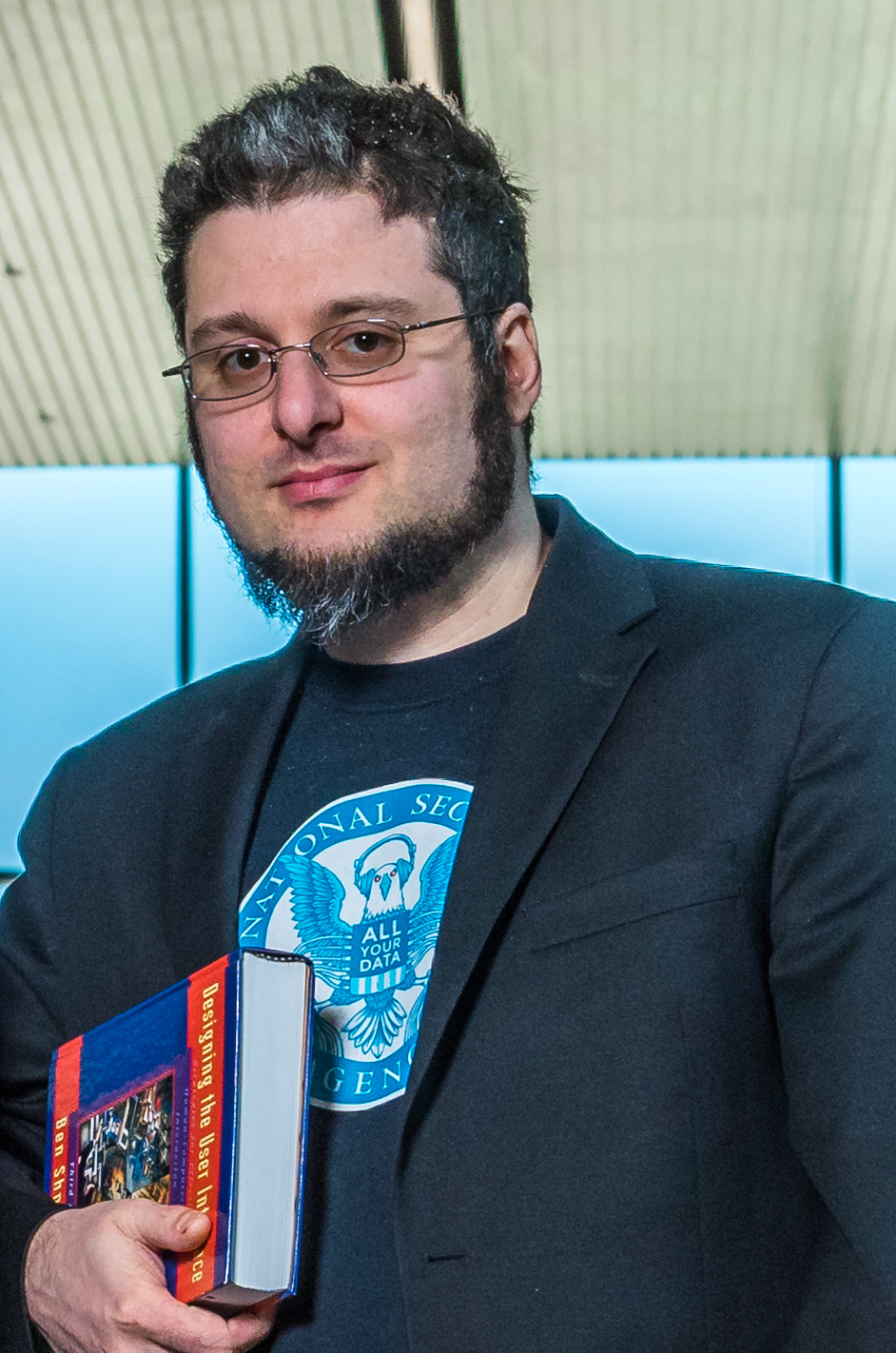 With recent funding from the National Science Foundation of more than $3 million over the next five years, the CyberCorps®: Scholarships for Service program at Kansas State University will continue to build on its history of producing high-quality graduates to meet national, state, local and tribal government demand for skilled cybersecurity personnel.
With recent funding from the National Science Foundation of more than $3 million over the next five years, the CyberCorps®: Scholarships for Service program at Kansas State University will continue to build on its history of producing high-quality graduates to meet national, state, local and tribal government demand for skilled cybersecurity personnel.
"Through a newly restructured and streamlined cybersecurity curriculum, students will receive not just training, but a comprehensive education in cybersecurity theory, fundamentals and the state of the art, enabling a nimble workforce that can readily adapt to new situations, technologies and computing modalities," said Eugene Vasserman, director of the program and associate professor in computer science and Michele Munson-Serban Simu Keystone research scholar.
Under the umbrella of the universitywide Center for Information and Systems Assurance, a National Security Agency/Department of Homeland Security National Center of Academic Excellence in Cybersecurity Research also directed by Vasserman, the award provides scholarship support for undergraduate and graduate students interested in cybersecurity research and practice.
The continuing CyberCorps® program, "CyberCorps SFS Renewal: Strengthening the National Cyber-Security Workforce," will build on the current momentum of providing unique opportunities for historically underrepresented groups, including rural and first-generation students, to become high-quality professionals in the field."
The project will result in an expanded cybersecurity curriculum, a strategic plan for cybersecurity with research focus areas and measurable goals, a continuous improvement plan to grow and evolve the program, including additional classes focused on special interest areas in cybersecurity, hands-on experience with real-world cybersecurity problems through the multistakeholder INSuRE program, and an annual goal and performance review system to tailor instruction and research involvement to the learning style of each student.
Computer science faculty members who will serve as co-investigators on the project include Scott DeLoach, department head and professor; Daniel Andresen, professor; George Amariucai, associate professor; and Arslan Munir, assistant professor.
"As Kansas and the Midwest have a large underserved, mostly rural and first-generation student population, this renewal of K-State's CyberCorps® program will help broaden participation of diverse and underrepresented groups," Vasserman said.
"We are uniquely situated to recruit veteran, active duty and non-scholarship ROTC students through our proximity to, and established relationship with, the U.S. Army's Midwest Regional Network Enterprise Center at Fort Riley and the Kansas Air National Guard in Wichita; and first-generation college students from underserved rural areas and from Kansas' designated Opportunity Zones."
Trudy Rice earns national community-vitality career award
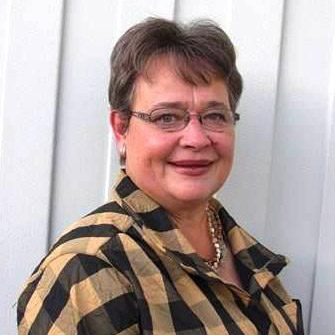 Trudy Rice, the K-State Research and Extension program leader coordinator for community vitality, has been awarded the 2020 Distinguished Career Award by the National Association of Community Development Extension Professionals, or NACDEP.
Trudy Rice, the K-State Research and Extension program leader coordinator for community vitality, has been awarded the 2020 Distinguished Career Award by the National Association of Community Development Extension Professionals, or NACDEP.
She was featured in a video presentation on the final day of the association's virtual annual conference, which took place June 1-2.
The distinguished career award recognizes association members who are actively engaged in extension community development who have served more than seven years in extension community development programming. Rice received the Distinguished Career Award from the Kansas Association of Community Development Extension Professionals annual conference in 2019.
Nominees are rated on their work with extension colleagues, education and development, professional accomplishments, personal interest in community development, and history of earning awards for their work.
Rice began her extension career as a 4-H agent in Douglas County. After stepping away to raise her children and run a small business, she returned as a family and consumer sciences agent and, in 1999, became the county extension director.
After a decade in that role helping to develop the Lawrence community, she was named state program leader for community vitality.
Currently, the focus of her community vitality team is centered on community assessment, community organizing, community improvement, celebration and evaluation. This process is supported through the development and delivery of programs such as First Impressions, Master Community Facilitator, the Kansas PRIDE Program and many more.
The state specialist team has grown by 3.5 full-time employee specialists during her leadership through the pursuit of public/private partnerships that have raised more than $2 million.
Along with this growth in extension personnel dedicated to community vitality in Kansas, Rice was instrumental in organizing KACDEP and ensuring its formal affiliation with the National Association of Community Development Extension Professionals.
Today, KACDEP serves as a catalyst for numerous efforts, both proactive and in response to emerging needs.
"Trudy lives and breathes the ideals of community development," said Gregg Hadley, director for extension in Kansas. "She is a tirelessly positive advocate for bringing people together to analyze local issues and mobilize people to work together and achieve solutions.
"If you've ever seen her orchestrate a conference room full of people to walk through an issue step by step, with everyone involved and committed to future actions — all while the meeting sticks to the announced schedule — you've seen an artist at work."
Rice's innovative work continues as the newly appointed program leader coordinator for community vitality. She, along with her PLC colleagues will coordinate an effort across the state extension system in the coming months to promote inter- and transdisciplinary programs developed by specialists across the university related to:
- Access to Opportunities, including jobs, child care, education, amenities and service.
- Farm/Market Viability.
- Mental and Physical Health.
- Community Relationships, including civic, cultural, belonging and urban/rural.
Not only does Rice promote, teach and expand the ideals of community vitality, but she also invests her own time in it by continually participating in training sessions and numerous boards and commissions in the Lawrence area where she lives.
Among the many state and national awards Rice has earned in her career are the Distinguished National Service Award from the National Association of Community Development Extension Professionals, the National Epsilon Sigma Phi Distinguished Service Award, K-State Research and Extension Outstanding State Specialist and Builder Awards.
Marlin Bates, Douglas County extension director and past chair of KACDEP, nominated Rice for both the state and national career awards. In his nomination, he said, "Trudy is committed to her own professional development as she understands that effort in this arena serves to strengthen her team, their programming and the institutions as a whole."
Jaime Menon, the extension state leader for community vitality, said, "Trudy is an inspiration to agents and specialists alike, and her work at the local, state and national level has been phenomenal. Kansas communities are definitely more vibrant due to her contributions to K-State Research and Extension both at the state and local level. A true difference maker!"
K-State Student News
K-State student receives international veterinary scholarship
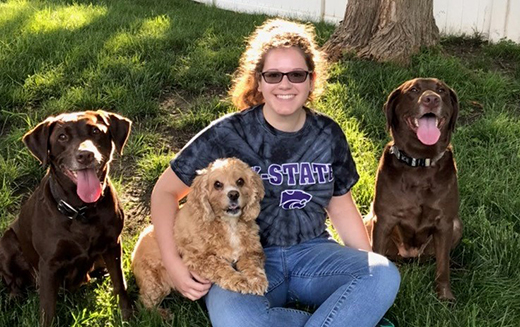 Emily Eppler, second-year Kansas State University College of Veterinary Medicine student from Manhattan, is one of 54 veterinary students selected from around the world to receive a $5,000 scholarship supported through a partnership between Merck Animal Health and the American Veterinary Medical Foundation.
Emily Eppler, second-year Kansas State University College of Veterinary Medicine student from Manhattan, is one of 54 veterinary students selected from around the world to receive a $5,000 scholarship supported through a partnership between Merck Animal Health and the American Veterinary Medical Foundation.
The recipients, who study at U.S. and international veterinary schools accredited through the American Veterinary Medical Association, are either second- or third-year students and are planning a career in companion animal or large animal medicine. Recipients were selected based on academic excellence, financial need, leadership and area of interest within the profession.
"I feel blessed to be one of the recipients of the 2020 Merck Animal Health Scholarship," Eppler said. "It is inspiring to know that the American Veterinary Medical Foundation and Merck Animal Health are investing in my goal of becoming a small animal orthopedic surgeon."
The scholarships will provide financial assistance to students to support their educational and professional goals and opportunities, according to Karen Davis, chair, American Veterinary Medical Foundation board of advisors.
"Whether they're helping to keep pets healthy or aid in ensuring a safe, high-quality protein supply, veterinarians play a critical role not only within the animal health industry, but also within society," said Scott Bormann, senior vice president, North America, Merck Animal Health.
